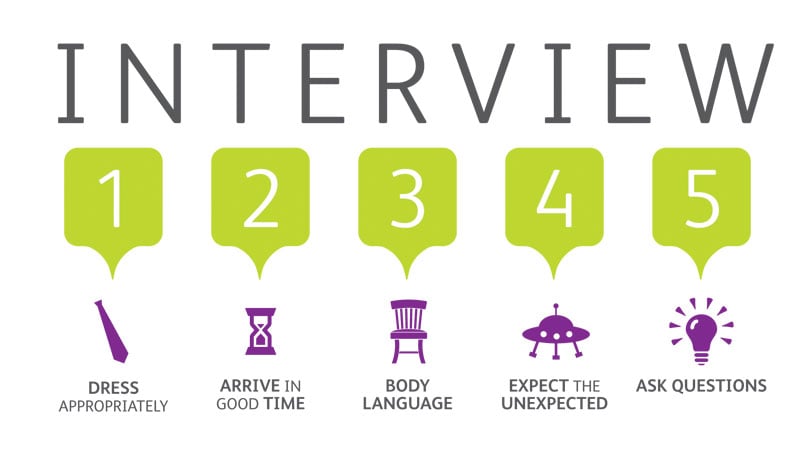Practice Tips and Activities

1. There are a number of different interview settings you may encounter and it's essential to see and know how to respond in every scenario. Do one interview with a friend or colleague, where you speak to this one individual. Then answer the questions in front of five to 10 friends or colleagues. And finally, answer the same questions speaking straight to the camera. Notice how each can take on a different tone, but try to keep up the trust and likeability you portray in each scenario.
2. No matter what the interview, the most common question is in reference to you and your personal traits. Practice describing yourself with language and tones that come across as confident but not cocky. Make sure you know your strengths and key characteristics you'd like your audience to know about you. Lastly, ask the practice interviewer if he or she thought your answer was believable.
3. Ask a friend to put three random topics in a hat. Pull one out at a time and practice your impromptu responses. Have the friend include one question in which you might not know the answer. It's better to rehearse how you'll handle an answer you don't know before you are in a critical interview.
4. Watch a taped interview of a polished interviewee and pause the video before they give their responses to the questions. Try your hand at the answers and see how your responses differ from the actual subject. Look for differences in dialogue, eye contact, body language and expressions.
5. Your body language can often tell more to your audience than your words do. Take one of your practice videos and watch it through with the volume turned off. See what your expressions and body language is portraying to the public. Ask a friend or colleague to watch the muted video as well and see if they can interpret the mood and impressions of your interview. Try playing around with different facial and body expressions in your next test interview from the feedback you receive.
6. Interviews can come in varying lengths and it's good to have experience knowing how to draw out an answer and how to edit it down to the key points. Ask a friend to come up with three different questions. First answer each question within a 30-second period. Then give yourself 60 seconds. And finally, give yourself two minutes to answer the same questions. Make sure the shortest answer doesn't exclude your most important points and make sure that your longest answer doesn't detract from the main topic.
7. In many interviews, you can't control what the interviewer is going to ask you, but you often have an agenda you want to accomplish or a point you want to make. Have a friend ask you an obscure question and try to work in a natural sounding transition to incorporate the point you want to make. Politicians are experts at this. Watch a few of their interviews to see how they always work an answer in the direction they want it.
8. Try being the interviewer and ask someone else the questions. It often helps to be on the other side of the microphone. It gives us a new perspective on how to answer questions.
9. Start putting in the numbers. As previously stated, nothing replaces practice and experience. Contact a local school, organization, radio station or TV station and ask them if you can perform a question-and-answer session. There is a different pressure when you answer questions for a stranger than when you answer for a friend or close colleague. The more interviews or Q&A's you can do, the better off you'll be.
10. Have fun! Even when you practice, put a smile on and try to focus on the positive aspects of your answers so you always portray an affable demeanor. Your good mood can influence others so keep the positive energy coming.
Interviews can be extremely important and can be quite influential in the outcome of your career. Knowing how important an interview can be, isn't it worth putting in the time to perfect your skills? Your interest in the improvement shows you are already halfway there.




